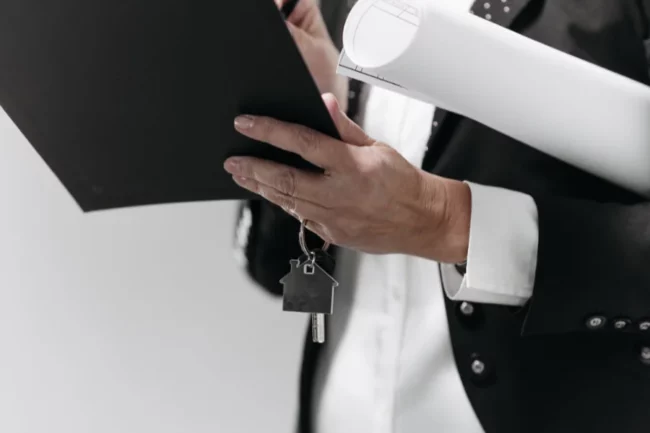
by David Crown
After being in the business for over 30 years, I’ve seen owners and their property management companies make just about every mistake in the book. I’ve even made half of them myself. Anyone who has experience with management understands just how hard it is to serve so many different parties, including but not limited to; the client, the tenants, the vendors and your own employees.
There’s countless reasons management can fall apart and relationships can break down but when I get a phone call from an owner interested in trying professional property management for the first time or switching companies because of a relationship that’s gone south, it’s almost always because of one of the five common pain points listed below.
I hope owners and property managers staple this list to their office walls like I have because if they can avoid these five issues, it’s my opinion they can weather just about any storm this industry will blow their way.
1.Poor Communication
No surprise here, the key to any relationship in life is communication and if you’ve got a breakdown in trust with a tenant, it’s going to create issues down the road.
I’ve found that healthy communication between any two parties is based on two things; availability and expectations. These are the pillars your management is based on. If the party can’t reach you when they need you, trust breaks down and problems multiply. There’s so many different means of communication today between text, calls, emails, website work orders, it’s easier than ever for someone’s request to be lost in the shuffle.
The same goes for expectations. If you’re not on the same page in terms of what you both expect out of the relationship agreement, it’s not going to end well. When we find a tenant who’s ready to sign the lease, we’re often already adding up the monthly rent in our minds and skipping past copius lines of boring lease agreements that are actually the bedrock of how things are going to work for the foreseeable future.
Your job as the owner/manager of the property is to make your availability and expected responsibilities as clear as possible from the start. Break out the stone tablets and etch into eternity your procedures for these two pillars and you’ll see not just a return on investment but a return of mutual trust and satisfaction.
2. Poor Tenant Screening
We all know someone who just wants to be in a relationship, not the right relationship. We jump into something that might not be the right fit because we want that pesky vacancy filled but the whole reason the screening process exists is to avoid substantial long term losses that will ultimately result from jumping into bed with the wrong party.
I knew an owner that spent two years building a beautiful 6-unit complex and they were so eager to start renting the place out when it was finally finished, they missed several red flags on their very first applicant they screened. It took six months to evict the tenant and a few additional months of renovation to get the unit back on the market and the investor’s real estate career started with a grueling eviction that has left them scarred ever since.
Standards are an important thing to establish in your relationships and anyone who doesn’t meet them isn’t worth your time or energy. You decide your income, background and credit requirements for a reason. Make sure they’re met before the lease gets signed.
3. Failure to Clarify Maintenance Responsibility
This is an extension of the second pillar of communication: clear expectations. Maintenance is the number one area where disputes occur, where resentments are first born and where owner-tenant relationships go to die.
When two people enter into a relationship there’s almost an exciting but nerve-wracking exchange of expectations of the future. It’s not an easy conversation but it’s one you better have before making it official.
Don’t skip the fine print during the leasing signing just to get that name on the dotted line. Owners might think that it’s the tenants who are the only ones who don’t read the lease but I can’t tell you how many times we’ve had one of our property supervisors inform an owner about the actual text of their own lease.
Take pride in your knowledge of the lease that you use. If you know it front, back and sideways you’ll feel confident you’re standing on firm ground with every signing you enter into.
4. Failure to Inspect Property On An Annual Basis
This is the annual health physical equivalent of the property management world. We do our annual medical exams not because they’re fun or because we need a bone snapped back into place. We do annual check ups to avoid those hidden-but-deadly issues that accumulate over time.
And just like any good doctor would tell you, a great inspection revolves around a great checklist. Make sure you live and die by your inspection checklist because the tenant could live or die based on the work performed. Those are the stakes here. Health and safety are no small matter in this business and could lead to the worst case scenario of the fifth and final mistake on our list.
5. Not Knowing the Updated Laws
Lawsuits are the dark cloud above all real estate management. One big mistake can turn a profitable year into a major loss. The difference between a new property owner and an experienced property owner is that new owners fear a high vacancy rate or low rent collection. Experienced owners fear lawsuits.
Keeping up to date on federal, county and local regulations can be a handful and if you’re not making a concerted and organized effort to stay educated, you’re going to fall behind. I know dozens of owners that became legal scholars when it came to fair housing and eviction regulations during the pandemic. Everyone struggled but those who skipped over the small leasing details were the ones who suffered the most.
While keeping yourself up to date with legal developments is important, few of us are actual legal attorneys. I always introduce our clients to several real estate law firms that we’ve had great experiences with in the past. You want to establish that relationship with these folks before a problem arises so that trust is built when a potential lawsuit does occur. Many of them offer online classes that keep owners up to date on local laws and can be a great way of feeling out the firm that is right for you before you commit to an attorney to guide you through these critical disputes.
In Summary
I promise that if you can avoid these mistakes you’ll be miles ahead of most owners and managers in this industry. While it may sometimes seem like property management is a cursed industry with impossible expectations, I think most will find those with a dedication to clear communication, proper screening, consistent inspections and regular legal education will find there’s an incredible amount of opportunity and profit in this industry for those willing to do things the right way.








